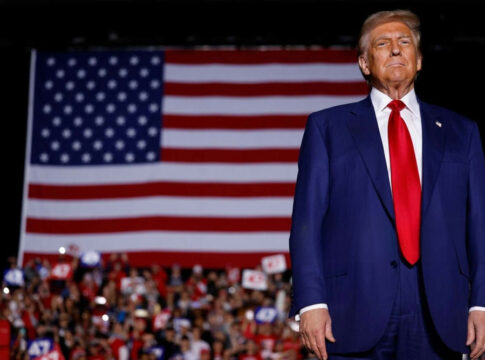Americans are finally learning just how much safer classified documents were at Mar-a-Lago than in the hands of an FBI and DOJ obsessed with political vendettas, as the federal witch hunt against President Trump exposes the absurd extremes of government overreach.
Federal Power Unleashed: The Raid on Mar-a-Lago and Its Fallout
On August 8, 2022, the FBI stormed Mar-a-Lago under a search warrant, seizing over 13,000 government documents, including more than 300 classified records. This was not some minor bureaucratic dispute—it was a full-blown federal spectacle, targeting a former president over alleged mishandling of records, even as negotiations between Trump’s team and the National Archives dragged on for months. The Department of Justice, spurred by claims that classified documents had not all been returned, launched a criminal investigation and wasted no time making headlines, while ignoring the glaring double standards that infuriate everyday Americans. For the first time in our nation’s history, the full weight of the federal government bore down on a former Commander-in-Chief over paperwork, sending a chilling message about how far unelected bureaucrats will go to protect their turf and punish their political opponents.
Classified Documents Were Safer At Mar-A-Lago Than With The FBIhttps://t.co/A90kAYQyk5
— The Federalist (@FDRLST) July 31, 2025
What makes this debacle even more galling is that, while President Trump’s Mar-a-Lago estate had round-the-clock Secret Service protection and tight security, the FBI wants you to believe America’s secrets were safer in the hands of agencies that have leaked, bungled, and lost track of sensitive materials for years. The hypocrisy is impossible to ignore. As legal wrangling continues in 2025—with some charges dropped following Trump’s triumphant return to office—Americans are left asking: Was the spectacle about national security, or about crushing a political outsider who dared to challenge the deep state?
Legal Firsts and Lasting Damage: How the Trump Documents Case Changed America
Federal prosecutors, led by Special Counsel Jack Smith, charged Trump and several associates with mishandling classified information and obstruction of justice. The unprecedented move set off a firestorm, stoking new debates about executive privilege, the scope of presidential power, and the ever-widening gap between how the law is enforced for political elites versus outsiders. Mainstream media outlets breathlessly reported every twist, while legacy bureaucrats in the DOJ and NARA insisted they were just upholding the law. But for millions of Americans, it looked more like a partisan hit job—a theatrical flex of federal muscle against a political threat, wrapped in the language of “national security” and “rule of law.”
Never before had a former president faced federal criminal charges over classified documents. Past disputes—whether over Nixon’s tapes or the Clinton email scandal—never reached this fever pitch, nor did they result in criminal prosecution. The Trump case, unfolding in the shadow of a pivotal presidential election, became a proxy war for the nation’s deepest divisions. Congressional committees and federal judges weighed in, but the damage to public trust in our institutions—already battered by years of overreach and selective enforcement—was undeniable. The case set a dangerous precedent, raising fears that wielding the machinery of justice against political foes could become the new normal in America.
Transparency, Double Standards, and the Erosion of Public Trust
In February 2025, a federal judge ordered the FBI to release some records from the Trump investigation, peeling back the curtain on the government’s tactics. The order, while hailed by some as a victory for transparency, only deepened the sense of political theater and selective prosecution. Trump and his allies, from the very beginning, denied any wrongdoing, framing the investigation as a politically motivated assault designed to cripple his campaign and silence dissent. Meanwhile, the DOJ and FBI stonewalled public inquiry, hiding behind “ongoing legal proceedings” while Americans demanded answers about who really poses the bigger threat to our national security: a former president storing documents at a guarded estate, or a sprawling federal bureaucracy that seems more interested in protecting itself than in serving the people.
Public debate rages on, with legal experts highlighting the unprecedented nature of prosecuting a former president, national security voices warning of the real risks posed by unsecured materials, and everyday Americans left to wonder if justice is truly blind—or just weaponized. The fallout has been profound: legal fees skyrocketing, government resources diverted to political show trials, and trust in federal law enforcement at historic lows. The Mar-a-Lago documents case will haunt our nation for years to come, a cautionary tale about the dangers of unchecked government power, politicized prosecutions, and the ongoing erosion of the freedoms the Constitution is supposed to protect.
Sources:
FBI investigation into Trump’s handling of presidential records
Federal prosecution of Donald Trump (classified documents case)
Judge orders FBI to release information in Trump documents case
Trump allies misrepresent FBI order on document search at Mar-a-Lago

